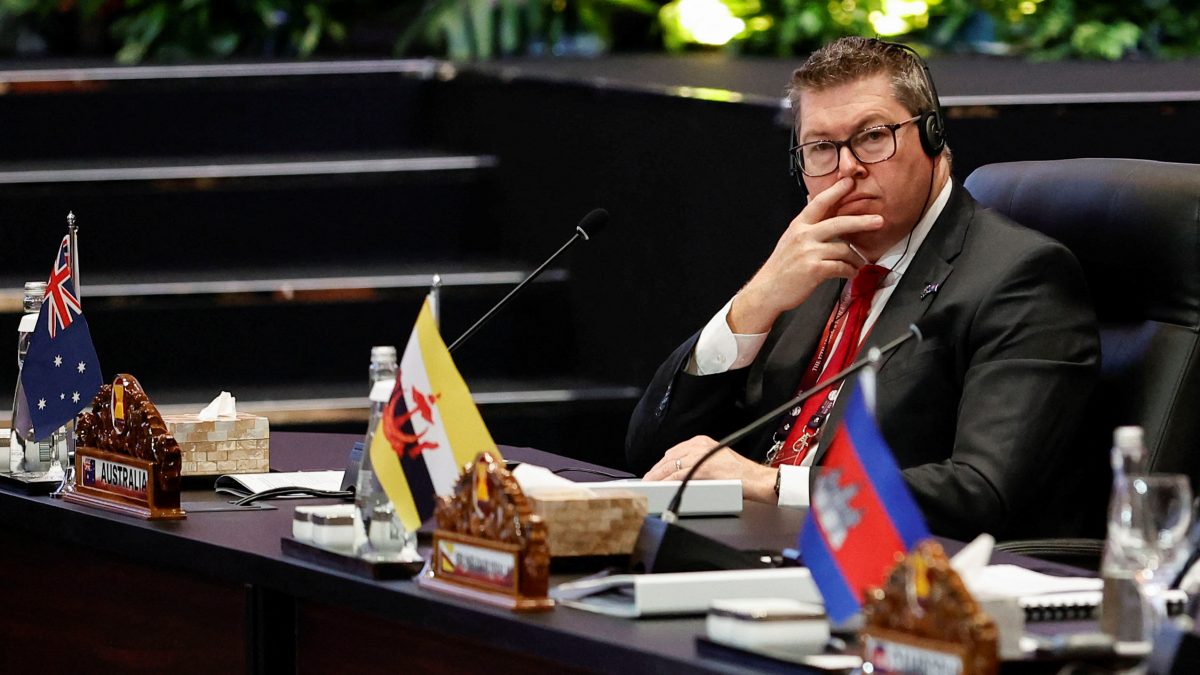Australia would not commit soldiers ahead of any fight, Defence Industry Minister Pat Conroy said on Sunday, reacting to a report that the Pentagon has asked its partner to clarify what role it would play if the US and China went to war over Taiwan.
In an interview with the Australian Broadcasting Corporation, Conroy stated that Australia prioritises its sovereignty and that “we don’t discuss hypotheticals”.
Conroy also stated, “The decision to commit Australian troops to a conflict will be made by the government of the day, not in advance but by the government of the day.”
According to the Financial Times, Elbridge Colby, the United States’ under-secretary of defence for policy, has been pressuring Australian and Japanese officials on what they would do in a Taiwan battle, despite the fact that the United States does not commit to protect Taiwan outright.
Colby stated on X that the Department of Defence is carrying out President Donald Trump’s “America First” goal of rebuilding deterrence, which includes “urging allies to step up their defense spending and other efforts related to our collective defense”.
China claims Taiwan, which is democratically governed, as its own and has not ruled out using force to seize control. Taiwanese President Lai Ching-te opposes China’s sovereignty claims, claiming that only Taiwanese citizens can determine their own future.
Australian Prime Minister Anthony Albanese, speaking in Shanghai at the start of a six-day visit to China that is likely to focus on security and trade, said Canberra did not want any change to the status quo on Taiwan.
Impact Shorts
More ShortsConroy said Australia was concerned about China’s military buildup of nuclear and conventional forces, and wants a balanced Indo-Pacific region where no country dominates. He said China was seeking a military base in the Pacific, which was not in Australia’s interest.
‘Goal is no war’
Talisman Sabre, Australia’s largest war-fighting exercise with the United States, opened on Sunday on Sydney Harbour and will involve 40,000 troops from 19 countries, including Japan, South Korea, India, Britain, France and Canada.
Conroy said China’s navy might be watching the exercise to collect information, as it had done in the past.
The war games will span thousands of kilometres from Australia’s Indian Ocean territory of Christmas Island to the Coral Sea on Australia’s east coast, in a rehearsal of joint war fighting, said Vice Admiral Justin Jones, chief of joint operations for the Australian Defence Force.
The air, sea, land and space exercises over two weeks will “test our ability to move our forces into the north of Australia and operate from Australia”, Jones told reporters.
“I will leave it to China to interpret what 19 friends, allies and partners wanting to operate together in the region means to them. But for me… it is nations that are in search of a common aspiration for peace, stability, a free and open Indo-Pacific,” he said.
US Army Lieutenant General Joel Vowell, deputy commanding general for the Pacific, said Talisman Sabre would improve the readiness of militaries to respond together and was “a deterrent mechanism because our ultimate goal is no war”.
“If we could do all this alone and we could go fast, but because we want to go far, we have to do it together and that is important because of the instability that is resident in the region,” Vowell said.
The United States is Australia’s major security ally. Although Australia does not permit foreign bases, the US military is expanding its rotational presence and fuel stores on Australian bases, which from 2027 will have US Virginia submarines at port in Western Australia.
These would play a key role in supporting US forces in any conflict over Taiwan, analysts say.


)

)
)
)
)
)
)
)
)



